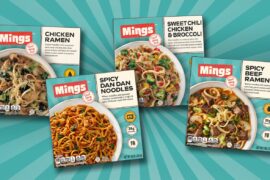Tokyo, Japan-headquartered Ajinomoto Co., Inc. aims to increase production of frozen rice in the USA by 50%. It will do so by investing almost $20 million in a new production line at its Windsor Quality Holdings subsidiary plant in Oakland, Mississippi. Once operational, which is scheduled for September of 2016, annual output of 22,000 tons is expected between the Mississippi plant and a sister factory in Portland, Oregon.
Sales of Windsor Foods’ frozen rice, dumpling and noodle products, which reportedly have more doubled during the past four years, have made expansion necessary to keep up with demand.
Ajinomoto North America, Inc. (AJINA), a consolidated subsidiary of Ajinomoto Co., Inc., acquired Houston, Texas-based Windsor Quality Holdings, LP in 2014 for approximately $800 million (about ¥84 billion). Established in 2004, Windsor has a broad retail network in the United States distributing a frozen product line ranging from Taipei. Golden Tiger and Ling Ling brand Asian-style foods to José Olé and Posada Mexican fare, Bernardi Italian-style cuisine, VIP vegetables and fruits and Fred’s appetizers. It also has a strong foodservice operation, with approximately 120,000 restaurants purchasing its offerings.
In developing countries, Ajinomoto Co. promotes products accentuating umami, flavor, menu-specific and other seasonings that appeal to the local or regional taste preferences. In developed markets, such as the US and Europe, it is specializing in more highly processed foods, with a lineup focused on ethnic Asian frozen and processed foods adapted to suit local customer tastes.
The sizable frozen food trade in North America is valued at approximately $40 billion (about ¥4 trillion). Within this market, the growth of Asian/Ethnic and differentiated categories of healthy-eating, high quality foods have been particularly robust in recent years.
Meanwhile, Ajinomoto is ready to invest up to $1.2 billion on overseas acquisitions in the near term, as it seeks to expand its reach internationally. “For merger and acquisition funding, we can tolerate our debt-to-equity ratio rising temporarily to as high as 50%,” President Takaaki Nishii recently told The Wall Street Journal.





